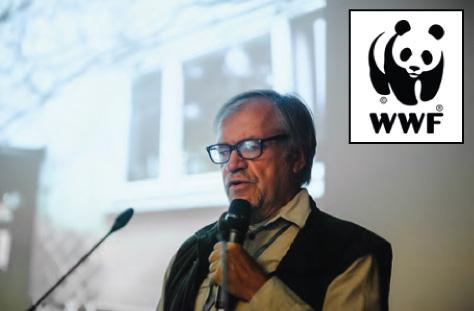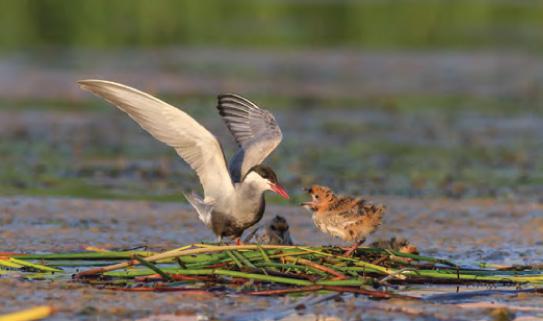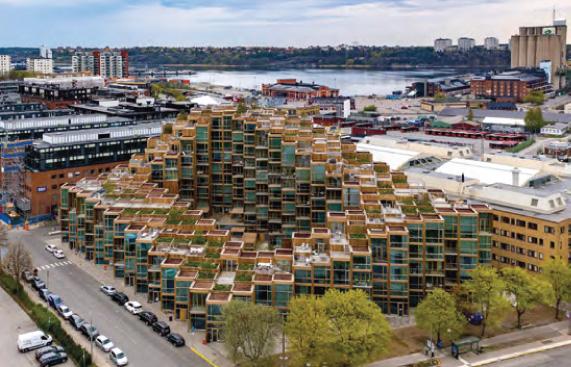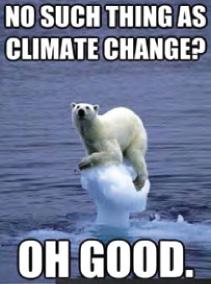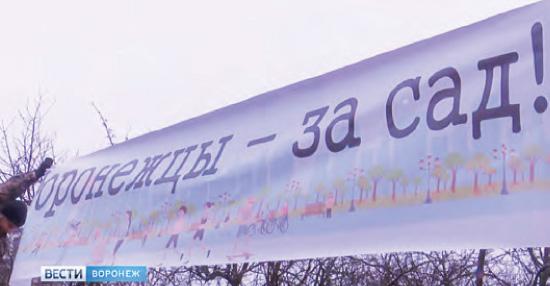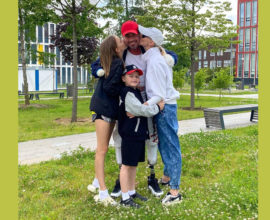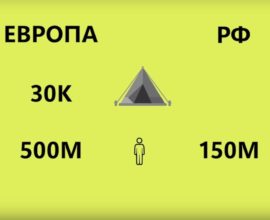Мы должны защищать зелёные зоны в городах // We need to protect green areas in cities
WWF conservation officer, Henrik Waldenstrom: ‘‘We need to protect green areas in cities’’ «Мы должны защищать зелёные зоны в городах»
20.02.2023
We would like to share an archive article from our magazine which is really up-to-date. // Мы хотели бы поделиться архивной статьей из нашего журнала, которая действительно актуальна и сегодня.
(текст на русском ниже и с параллельным переводом в pdf файле)
Vlad: Henrik, can you, please, tell us about yourself and your presentation?
Henrik Waldenstrom, a senior conservation officer in Stockholm (Sweden) in WWF 1 (World Wide Fund for Nature): My aim is to protect green areas in cities. It’s important to save green areas everywhere, but I am trying to collect arguments for the value of the green areas close to cities. And, especially, I work with large parks in large cities.
Cities are growing very quickly. More and more people are moving there, so the green areas and green infrastructure are more and more under threat. It’s important to save them. And we have many reasons for that: biodiversity; health connected with recreation, cultural heritage; etc. But in the future we will have an increasing climate change, so green areas and large parks will be essential to mitigate the effects of nature’s transformation.
Сommon Tern (Sterna hirundo), breeding in temperate and subarctic regions of Europe, Asia and N. America. It is strongly migratory, wintering in subtropical regions.
Vlad: It’s serious, but how can we stop climate change?
Henrik: We have to change our lifestyle. We drive cars. Most of the car trips are less than 5 km. We can walk more. We can bike more. We need to, perhaps, not to skip, but to reduce the consumption of meat. And we need to have the consumer power so that we can boycott countries and companies that are doing bad things.
For example, Brazil is very bad at managing the rainforests – they’re being burned for agricultural purposes. We must protest all over the world because the rainforests in Amazon are extremely important for the planet.
We must also think about the fish species we’re consuming. If species are threatened, we should avoid buying them, and tell the fishermen and the stores that we cannot buy that fish. And then we must inform people about ‘‘the green values’’, ecosystem services that are free but priceless. Clean water, ocean system, climate resilience. I mean, the ecosystem sources are very important. And they should play not a small, but a huge role.
1 Formerly named the World Wildlife Fund, (WWF) is an international non-governmental organization founded in 1961, working in the field of wilderness preservation, and the reduction of human impact on the environment.
Vlad: I see. So, what can you advise to make the ecological situation better in Russian cities and in Voronezh, for example?
Henrik: You need to plan the green areas and make the city sustainable by building ‘‘green roofs’’, ‘‘green walls’’, small and large parks – the whole system of green areas, – plan it, protect it and connect it. It’s a system, not isolated islands. And that will give Voronezh a good chance to minimize the effects of climate change. Also, people must be aware of the values of green areas. I call it ‘‘mental protection’’. You must inform people, so that they would pressure the politicians and planners not to destroy the green areas. We need more green areas, not less.
A residential development that is enriching Stockholm (Sweden) with «green roofs», offering a living environment with a return to nature tranquillity
‘‘You must inform people so that they would pressure the politicians and planners not to destroy the green areas’’
Vlad: Let’s go back to the question of forests. As you know, a lot of forests were burned in Russian Siberia. So it was a huge and massive fire[1]. About 12% of forest in Siberia was under the threat of distinction this year. (More than 20% of forests on the Earth are located in the Russian Federation with the total area of 800 mln hectares, as of 2015) And what did WWF try to do with this problem?
Henrik: It is a very serious problem… We have a big company that works with wood a lot – IKEA. They make furniture. They try to work with WWF on sustainable forests in Russia. I don’t know exactly what happened to the Siberian forests according to WWF action, but I know other examples. For example, Sweden and Russia want to solve problems with poaching the Siberian tiger. Russia, with support of president Putin, really wants to stop the poaching. There’s a lot of poaching for big animals, like the Siberian tiger, and Russia is doing a better job than many other countries. And we must take action. If we help nature, we help ourselves. Both, in the jungle and in the city.
Vlad: Absolutely agree with you. Thank you!
Ecology in Action
Voronezh citizens gathered on a rally to protect the apple garden, which politicians and developers want to cut down. Find out more by the link englishmag.ru/ecology-action
Горожане собрались на митинг в защиту яблоневого сада, который застройщики хотят срубить https://vestivrn.ru/news/2019/12/16/
Хенрик Вальденстрем, старший сотрудник по охране природы в Стокгольме (Швеция) в WWF: «Мы должны защищать зелёные зоны в городах»
Влад: Хенрик, можете, пожалуйста, рассказать о себе и о своей презентации?
Хенрик Вальденстрем, старший сотрудник по охране природы в Стокгольме (Швеция) в WWF (Всемирный фонд дикой природы): Моя цель – защищать зелёные зоны в городах. Важно сохранить зелёные зоны везде, но я стараюсь собрать аргументы в пользу важности зелёных зон вблизи городов. И, особенно, я работаю с большими парками в больших городах.
Города растут очень быстро. Всё больше людей переезжают туда, поэтому зелёные зоны и зеленая инфраструктура всё больше находятся под угрозой. Важно сохранить их. И у нас есть много причин для этого: биоразнообразие; здоровье, связанное с отдыхом; культурное наследие и т. д. Но в будущем у нас будет изменение климата, поэтому зелёные зоны и большие парки будут необходимы для смягчения последствий трансформации природы.
Влад: Это серьезно, но как мы можем остановить изменение климата?
Хенрик: Мы должны изменить образ жизни. Мы водим машины. Большинство поездок на автомобиле занимает менее 5 км. Мы можем больше ходить пешком. Мы можем больше ездить на велосипеде. Нужно, возможно, если не исключить, то сократить потребление мяса. И нам нужно потребительское право, чтобы мы могли бойкотировать страны и компании, которые совершают плохие дела.
Например, Бразилия очень плохо управляет тропическими лесами – их сжигают для сельскохозяйственных целей. Мы должны протестовать по всему миру, потому что тропические леса в Амазонке чрезвычайно важны.
Мы также должны думать о видах рыб, которые мы потребляем. Если какой-то из них находится под угрозой, мы должны избегать покупать их и сказать рыбакам и магазинам, что мы не можем купить ту или иную рыбу. И тогда мы должны информировать людей о «зелёных ценностях», экосистемных ресурсах, которые бесплатны, но бесценны. Источники экосистемы очень важны, и они должны играть не малую, а огромную роль.
Влад: Хорошо, я понимаю. Итак, что вы можете посоветовать, чтобы улучшить экологическую ситуацию в городах России и, как пример, в Воронеже?
Хенрик: Вам нужно планировать зелёные зоны и сделать город экологически устойчивым, строя «зелёные крыши», «зелёные стены», маленькие и большие парки, – всю систему зелёных зон нужно планировать, защищать и соединять. Это система, а не изолированный остров. И это даст Воронежу хороший шанс минимизировать последствия изменения климата. Кроме того, люди должны быть осведомлены о ценностях зелёных зон. Я называю это «ментальной защитой». Вы должны информировать людей, чтобы они давили на политиков и планировщиков, чтобы те не уничтожали зелёные зоны. Нам нужно больше зелёных зон, а не меньше.
«Вы должны информировать людей, чтобы они оказывали давление на политиков и планировщиков, чтобы те не уничтожали зелёные зоны»
Влад: Давайте вернёмся к вопросу о лесах. Как известно, в Сибири сгорело много лесов за последнее лето. Это были огромные пожары… Около 12% лесов Сибири были под угрозой исчезновения.
Хенрик: Это очень серьёзная проблема… У нас есть большая компания, которая много работает с деревом – IKEA. Они делают мебель. Я не знаю точно, что произошло с сибирскими лесами согласно действиям WWF, но я знаю другие примеры. Например, Швеция и Россия хотят решить проблемы браконьерства на Сибирского тигра. Россия, при поддержке президента Путина, действительно хочет остановить браконьерство… В больших количествах охотятся на крупных животных, таких как сибирский тигр. Но Россия делает свою работу лучше, чем многие другие страны. И мы обязаны принять меры. Если мы помогаем природе, то помогаем и себе. Как в джунглях, так и в городе.
Влад: Полностью согласен с Вами. Спасибо!
EnglishMag (English Magazine) — 1Q/2020
- https://www.greenpeace.org/international/press-release/23660/massive-forest-fires-in-siberia-is-a-climate-emergency/ = https://vk.cc/adoS8a ↑

